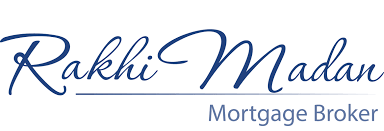Applying for a mortgage is an exciting step towards homeownership. However, it can also be a complex process filled with potential pitfalls. To ensure a smooth and successful mortgage application, look to avoid common mistakes that can derail your plans and cause you to miss out on a great opportunity. Being aware of these pitfalls and taking proactive measures can increase your chances of securing the mortgage you need to fulfill your dreams.
Skipping the Pre-Approval
One of the biggest mistakes you can make when applying for a mortgage is skipping the pre-approval. A pre-approval is a crucial step in the home-buying process because it lets you know exactly how much you can borrow, giving you a clearer understanding of your home-buying budget. You’ll learn what your monthly payments will be and get a rate guarantee for up to 120 days.
It’s important to note that a pre-approval isn’t the same as pre-qualification. Pre-qualification is an estimate of how much you may be able to borrow based on your credit score, income, and debt-to-income ratio. Pre-approval, on the other hand, is a more in-depth process where lenders verify your creditworthiness, employment status, income, and other financial details.
Skipping the pre-approval process can cause significant problems down the road. Without a pre-approval, you’ll have no idea how much home you can afford to buy, which could cause you to waste time looking at homes out of your price range. You don’t want to risk wasting time and falling in love with a house that you can’t afford. And, if you eventually find a home you want to buy and apply for financing only to get denied, the hard inquiry could affect your credit score if several hard inquiries are made, making it harder to get approved for a mortgage in the future.
When you find the home of your dreams, you want to be able to act confidently and have the seller know you are a serious buyer, more reasons to get your mortgage pre-approval!
Not Understanding How Much You Need for a Downpayment and How Mortgage Default Insurance Works
A downpayment is a crucial component of buying a home and one of the biggest obstacles for first-time buyers. The minimum downpayment required is 5% on the first $500,000 of the home’s value and 10% on the remainder up to $1 million. Putting the minimum down means you are required to have an insured mortgage and pay mortgage default insurance, which can add a significant amount to your monthly mortgage payment.
If you have a 20% downpayment you are not required to have mortgage default insurance. All purchases of $1 million or more require 20% down.
Mortgage default insurance protects the lender in case you default on your mortgage. The insurance premium is calculated as a percentage of the total mortgage value and is added to your mortgage payments. Not understanding how much you need for a downpayment and how mortgage default insurance works can cause a setback to your home-buying plans.
Making a Major Life Change – Quitting or Changing Your Job, Starting a Business
Your employment status plays a huge role in mortgage qualifying. Lenders want to see that you have a stable job and income. Making a major life change like quitting or changing your job, starting a business, or going on maternity leave, can negatively impact your ability to get approved for a mortgage.
Lenders prefer stability and consistency when assessing your financial situation. Drastic changes in employment or income can raise concerns with your lender. If you’re planning such a life change, it’s wise to get in touch so we can discuss the implications and plan accordingly.
Additionally, keep in mind that if you’re self-employed, you’ll need to provide additional documentation like tax returns, financial statements, and other business records to verify your income.
Taking on New Debt – Buying a New Car, Running Up Credit Cards
Taking on new debt shortly before or during the mortgage application process is a common mistake that can jeopardize your chances of securing a mortgage. When you apply for a mortgage, lenders look at your debt-to-income ratio, which is the percentage of your monthly income that goes toward paying off debt. Taking on new debt can increase your debt-to-income ratio, making it harder to get approved.
If you’re thinking about buying a new car, making a big purchase, or running up credit cards before applying for a mortgage, it’s best to hold off until after you’ve secured financing for your new home. Maintaining good credit by paying bills on time and keeping your credit card balances low is also important.
Providing Incorrect Information
When applying for a mortgage, it’s important to provide accurate information. Providing incorrect information can lead to delays in the approval process or even denial of your application. Be sure to carefully review all documentation and double-check the information before submitting your application. This includes details about your income, employment history, assets, and liabilities. Honesty is the best policy when it comes to mortgage applications.
Not Budgeting for Closing Costs and Ongoing Household Expenses
While many prospective homeowners focus on downpayment and mortgage payments, they often overlook the additional costs associated with buying a home.
Closing costs are an inevitable expense and can amount to a significant sum. These costs typically include appraisal fees, legal fees, title insurance, land transfer taxes, and other expenses associated with closing on a home. It’s important to budget for these expenses, as they can add up quickly and catch you off guard.
Remember to also consider ongoing household expenses when budgeting for a mortgage. Owning a home comes with additional expenses like property taxes, insurance, and maintenance costs. You want to factor these costs into your budget to ensure you can meet your financial obligations relating to your home and feel confident you can handle all your payments. It’s always best to try and avoid financial stress down the line.
Trying to Buy More House Than You Can Afford
It’s easy to get caught up in the excitement of buying a new home and aim for a house that’s out of your price range. However, trying to buy more house than you can afford is a common mistake that can lead to eventual financial trouble. It’s important to create a realistic budget and stick to it when shopping for a home. You should take the amount on your mortgage pre-approval seriously and aim for that amount or less, not more.
When determining how much you can afford, consider all your expenses, including debts, ongoing household expenses, and an emergency fund. Be realistic about your budget and choose a home that aligns with your financial capabilities. Also consider potential future changes, such as career advancements, family planning, or unforeseen circumstances. By staying within your means, you can ensure a more stable and sustainable homeownership journey.
Not Working with a Mortgage Broker
Navigating the mortgage landscape can be overwhelming, especially for first-time homebuyers. Many individuals make the mistake of not seeking the assistance of a Mortgage Broker. A Mortgage Broker acts as an intermediary between you and over 50 different lenders, including major Banks, credit unions, and national, regional, and private lenders, ensuring you find the best mortgage option and rate for your specific situation.
A Mortgage Broker can help you early in the process with advice on your credit and downpayment. You’ll also be glad for your Mortgage Broker’s guidance when it comes to navigating the complex mortgage approval process, understanding what your closing costs will be, and helping you understand the terms of your mortgage.
Working with a Mortgage Broker can save you time, effort, stress, and even money by helping you find the most favorable mortgage rate and features available.
Trust Rakhi Madan, Brampton Mortgage Broker
When it comes to your mortgage journey, trust Rakhi Madan, your dedicated Brampton Mortgage Broker. Rakhi is committed to guiding you through the process and helping you avoid common pitfalls. With her expertise, you can navigate the complexities of mortgage applications and best mortgage rates, understand downpayment requirements, make informed decisions throughout the process, and budget effectively for closing costs and ongoing expenses.
Working with Rakhi ensures personalized advice and access to a wide range of lenders, saving you time, effort, and money.
If you are in Brampton, Toronto, or the GTA, trust Rakhi Madan to make your mortgage experience a smooth and successful one. Happy house hunting!
Other Important Considerations
While we have covered some of the most common mistakes, there are a few additional aspects to keep in mind when applying for a mortgage:
- Documentation: Prepare all the necessary documentation ahead of time, such as proof of income, tax returns, bank statements, and identification documents. Having these readily available will expedite the application process.
- Credit History: Your credit history plays a crucial role in mortgage approval. Ensure that you have a good credit score by paying bills on time, reducing debts, and avoiding late payments. Checking your credit report for errors well in advance of applying for a mortgage is also recommended.
- Interest Rates and Terms: Take the time to understand different mortgage interest rate options, such as fixed-rate and variable-rate mortgages. Consider the pros and cons of each and with your Mortgage Broker’s guidance choose the one that aligns with your financial goals and risk tolerance.


